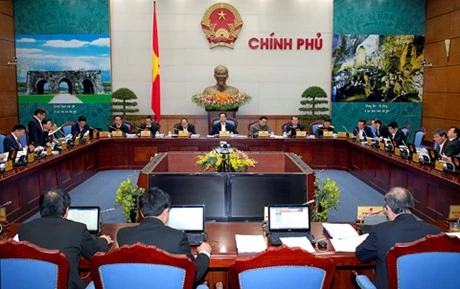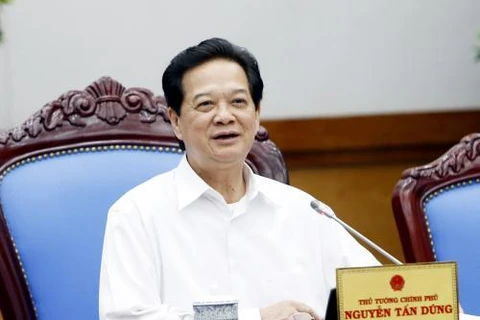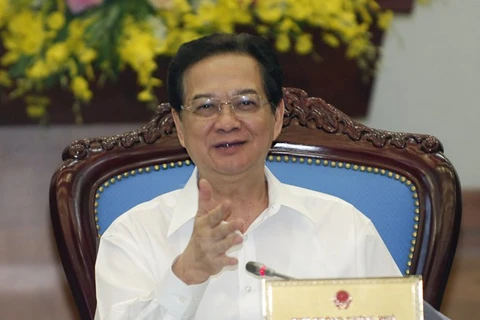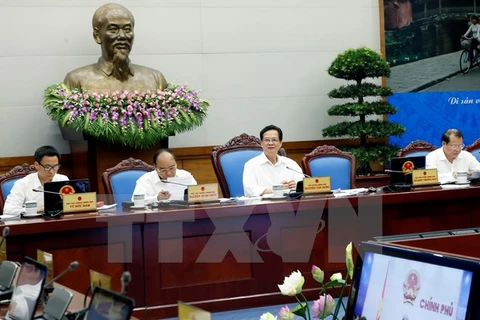Prime Minister Nguyen Tan Dung directed prompt policy responses to achieve the best socio-economic performance for the remaining months of 2015 during the two-day monthly Government meeting that closed in Hanoi on October 1.
With gross domestic product (GDP) growth hitting 6.5 percent in January-September – the highest in four years, the 2015 growth rate is likely to move higher, driving the average GDP for five years to roughly 6 percent, he commented.
He ordered drastic actions in agriculture, tourism and farm produce export, easing over-reliance on China and seeking new markets.
Ministers were asked to accelerate the progress of business and banking restructuring in tandem with bad debt settlement.
On administrative reform, initiatives to improve the business climate and national competitiveness will continue, including those regarding customs, taxation and land under the charge of the Ministries of Finance and Natural Resources & the Environment.
Nine ministries have connected to the national one-stop shop (OSS) and ASEAN OSS customs mechanisms. The Ministries of Agriculture & Rural Development and Public Health were asked to link with the ASEAN OSS portal in the foreseeable future.
The Ministry of Labour, Invalids and Social Affairs must issue sustainable poverty reduction criteria (multidimensional measurement approach) to be applied next year, given that the target of recognising half of communes nationwide as new-style rural areas by 2020 is likely to be out of reach. Only slightly more than 10 percent of communes have gained that status thus far.
Ministries, agencies and localities must drastically act on the national target programme on new rural construction, strengthen national defence-security and social safety and order, and provide the media with the latest accurate information on all socio-economic aspects.
The Ministry of Planning and Investment is responsible for collecting feedback on the 2016-2020 socio-economic development structure.
Regarding budget tasks, the PM stressed that the State budget needs to be restructured towards increasing spending for investment and revenue collection, ultimately ensuring the safety of public debt and national finance.
The leader made specific demands regarding the issuance of bonds within the international capital market, the application of information technology in the State administrative management and measures to develop the e-government model.
According to Minister of Planning and Investment Bui Quang Vinh, 2015 economic growth was driven by industrial manufacturing, production and exports by foreign-invested enterprises and domestic consumption thanks to macro-economic stability and low inflation.
Looking at 120.7 billion USD worth of exports and 124.6 billion USD imports during the nine months, government members said China’s yuan devaluation has not greatly impact Vietnam’s exports and imports.
Preliminary estimates show that Vietnam’s imports from China are likely to gain additional 0.04 percent this year and 0.08 percent next year. Meanwhile, its exports to the neighbouring country will be less impacted owing to VND/USD adjustment and export stimulation measures.
Deputy Prime Minister Vu Van Ninh attributed the achievements to prompt State directions in response to falling oil prices, European and Chinese economic slowdown and debt crisis.-VNA

























